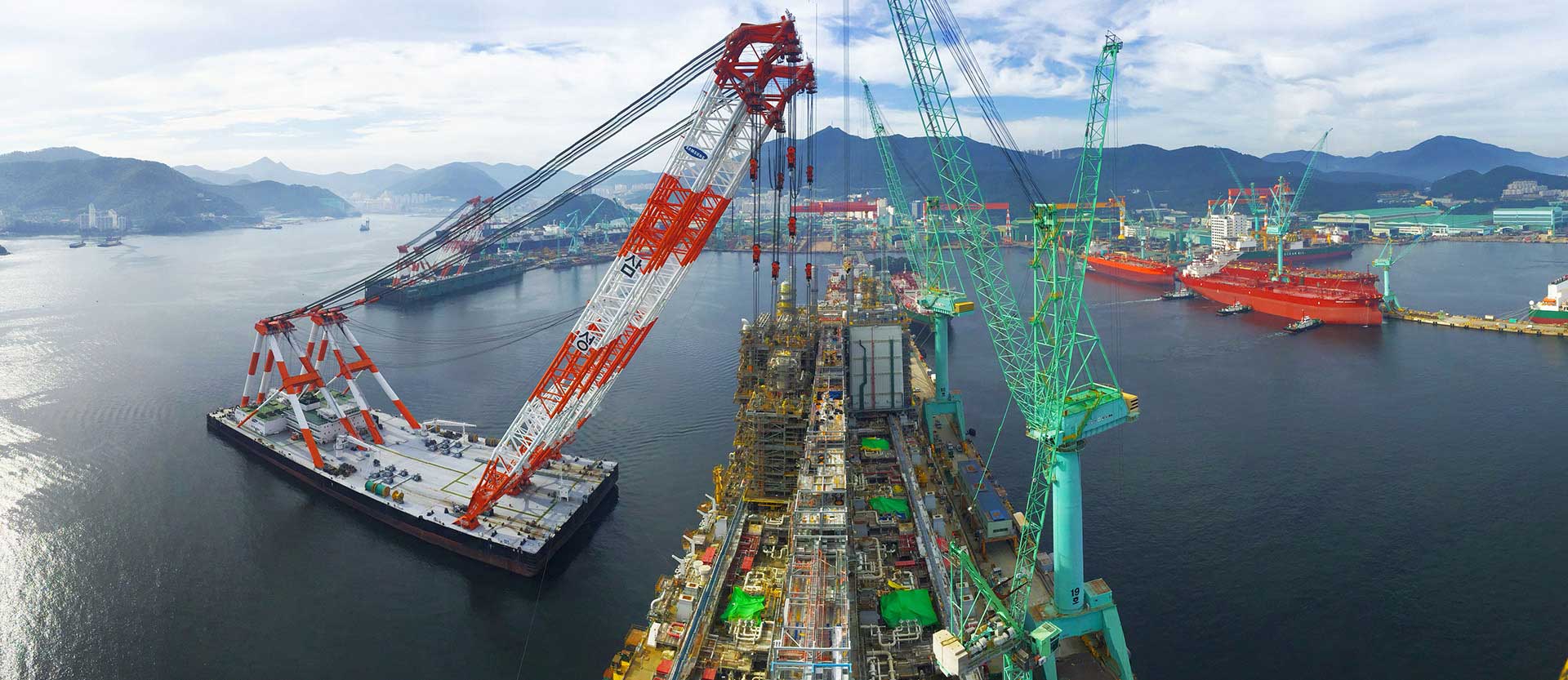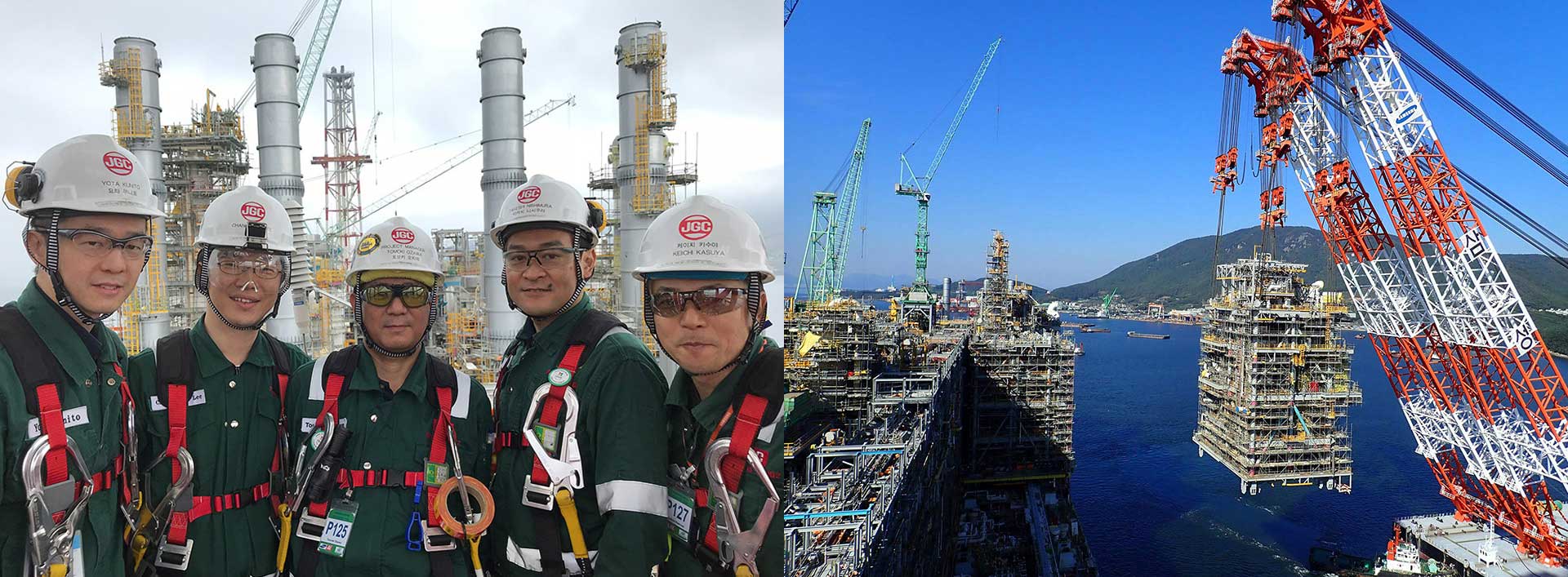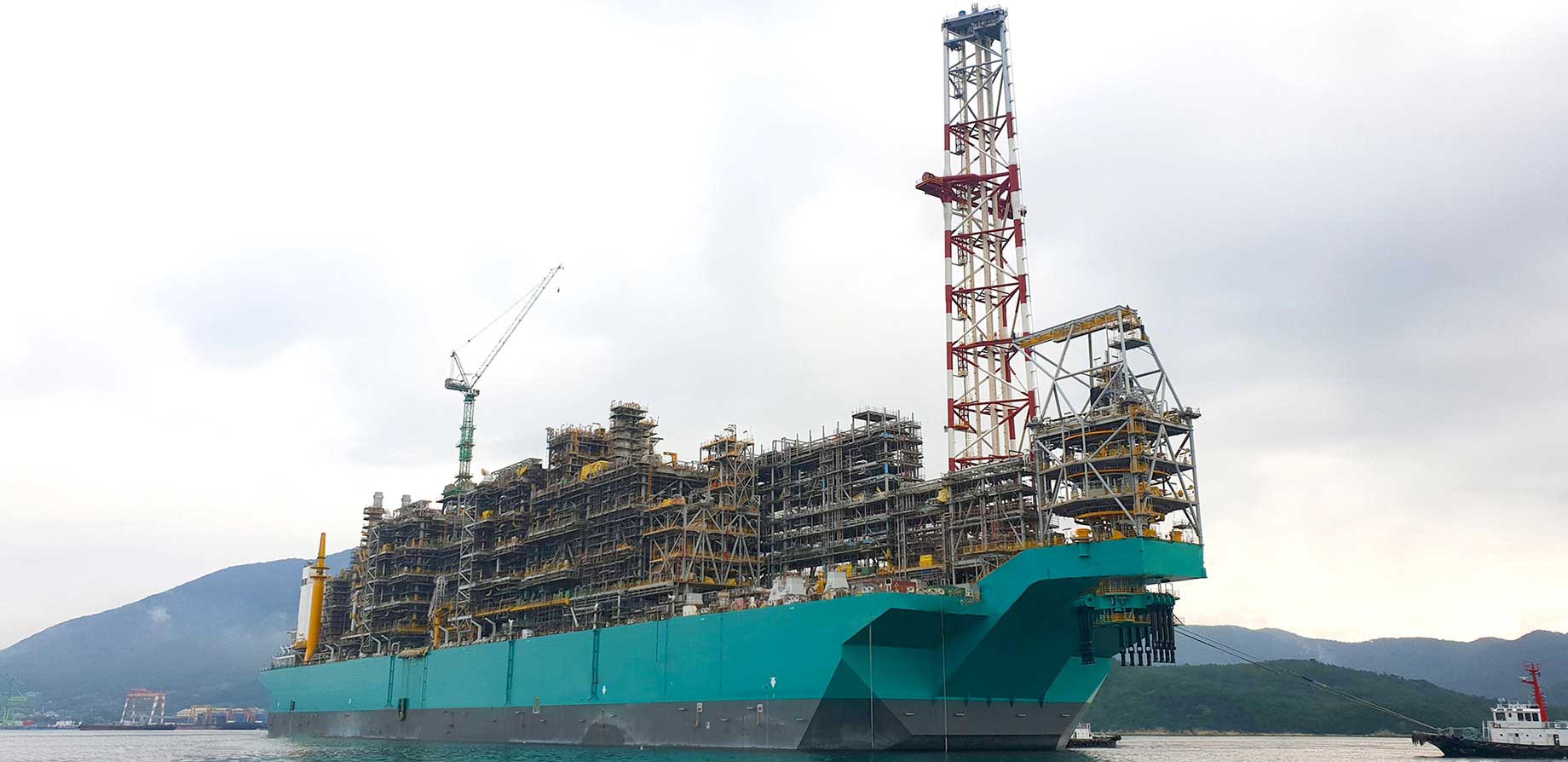JGC's Contract for a Floating LNG Plant, the First for a Japanese Company
Among the gas fields distributed all over the world, many of them are small-to-medium size reserves, and mostly in the ocean. For the increase in energy demand mainly in emerging countries, development plans for small-to-medium scale offshore gas fields, which have not been developed or commercialized in the past from the viewpoint of economic efficiency, are now planning to progress by state-owned and major oil companies.
PETRONAS, the Malaysian state-owned oil company, was planning a project to construct the third floating LNG in the world to develop offshore gas fields in the state of Sabah.
JGC intended its positioning as a leading contractor for LNG projects, offshore as well as onshore, and formed a consortium with Samsung Heavy Industries Co. Ltd., South Korea's representative general heavy industries company, and raised their capabilities of floating LNG EPCIC to PETRONAS jointly. PETRONAS comprehensively evaluated JGC's extensive experiences in onshore LNG EPC projects and Samsung Heavy Industries' advanced shipbuilding technology, and in February 2014, JGC succeeded in being awarded the contract for a floating LNG EPCIC project, the first for a Japanese company.

Opening the way to the Oceans
This project is a pioneering one in the offshore oil and gas industry for constructing the world's first floating LNG to develop the deep water gas fields of 1,000 meters depth, and also has an extremely high degree of difficulty from technical standpoints.
"We repeated the trial-and-error process in the floating LNG engineering approximately 10 times that of onshore one even just for the piping design, as there were challenges to require new technical solutions beyond the onshore LNG engineering know-how and Lessons Learned," says a JGC engineer working on this project. To progress the module construction as per the EPCIC schedule, it was necessary to transfer technical information required for the construction such as design drawing, engineering data timely to Samsung Heavy Industries, which was in charge of the construction, so speed and quality of the floating LNG engineering were truly needed.
JGC reviewed the design flow from scratch and developed a new design approach of the floating LNG, "Plant Layout Oriented Engineering", having the concept of one-team composing of multi discipline engineers, of which the key concept is to share all discipline information concerning the plant layout with timely manner. The information includes not only final discipline design/engineering results but also each discipline work status and/or potential change of the design. The approach has worked effectively and resulted in the optimization of the design/engineering sequence and in the engineering completion of about half a year faster than onshore LNG EPC projects.

Leading Floating LNG EPC Projects
In June 2017, JGC was also awarded an EPCIC contract for ENI Coral FLNG project in Mozambique, the first FLNG project in the Africa region. JGC is executing two out of the five floating LNG EPCIC projects currently available in the world which are ongoing or already started the operation. While there may be further challenges in floating LNG from now, JGC will overcome them as a leading company of the EPCIC projects.

No carry over work to Offshore!
The construction work is making progress on schedule toward the completion in 2020.
All the topside modules are installed on the hull, now the project team set out the target "No carry over work to Offshore".
The key success factor of on-time delivery of the floating LNG is NOT to carry the planned onshore work over to offshore.
Some statics says offshore work efficiency drops down to less than 25 % of its' on-ground, so to eliminate unplanned offshore work, JGC is taking initiative and making move with "3-ON" approach from the beginning of the project phase.
- ON-Time delivery of DWG/Equipment - to ensure the construction of the topside module as planned
- ON-Ground construction maximum - finish inspection and tests on land at the end of construction stage of the topside module
- ON-Shore mechanical completion and commissioning maximum - plan and finish all the commissioning work can be done on shore before sail away
The concept is, to maximize On-shore work as much as possible.

